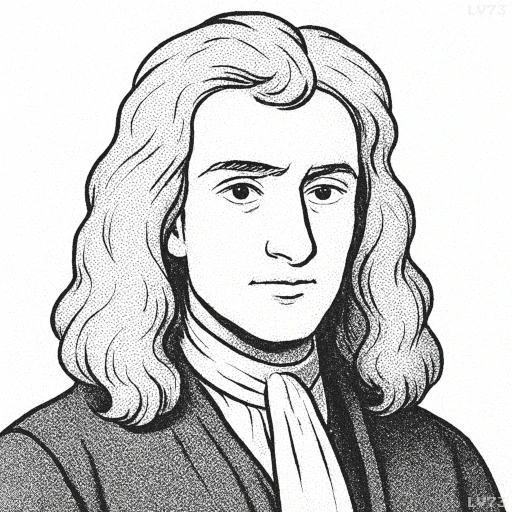“I can calculate the motion of heavenly bodies, but not the madness of people.”

- January 4, 1643 – March 31, 1727
- Born in England (UK)
- Natural philosopher, mathematician, physicist, astronomer, theologian
table of contents
Quote
“I can calculate the motion of heavenly bodies, but not the madness of people.”
Explanation
In this quote, Isaac Newton humbly acknowledges the limitations of his knowledge and abilities, despite his extraordinary contributions to the understanding of the universe. He had successfully formulated the laws of motion and universal gravitation, which allowed him to calculate the predictable paths of celestial bodies with great precision. However, when it comes to human nature, particularly the irrational and often unpredictable aspects of human behavior—the “madness of people”—he admits that such complexities are beyond even his scientific prowess. This statement reflects a recognition that while the natural world operates according to orderly, mathematical laws, human emotions, thoughts, and actions are far more difficult to predict or quantify.
Newton’s statement reveals a deeper philosophical insight about the difference between the physical world and the human world. While science is highly successful in explaining the mechanics of the universe—things like the movement of planets or the behavior of objects under the influence of gravity—human behavior is far more unpredictable due to the complexities of psychology, society, and individual free will. In this sense, Newton is acknowledging that, despite his groundbreaking work in physics, the nature of human thought and action remains a domain that cannot be fully understood or controlled by scientific laws alone.
In modern times, Newton’s quote resonates with the continued challenges faced in fields like psychology, sociology, and behavioral science, where the complexities of human behavior still elude simple explanations or predictions. While advances in these fields have allowed us to understand many aspects of human decision-making, emotions, and cognition, they still do not offer the same predictability and precision found in the natural sciences. Newton’s reflection remains a reminder of the limitations of science in addressing the irrational and often chaotic aspects of human life, which continue to be a subject of both scientific inquiry and philosophical reflection.
Would you like to share your impressions or related stories about this quote in the comments section?
